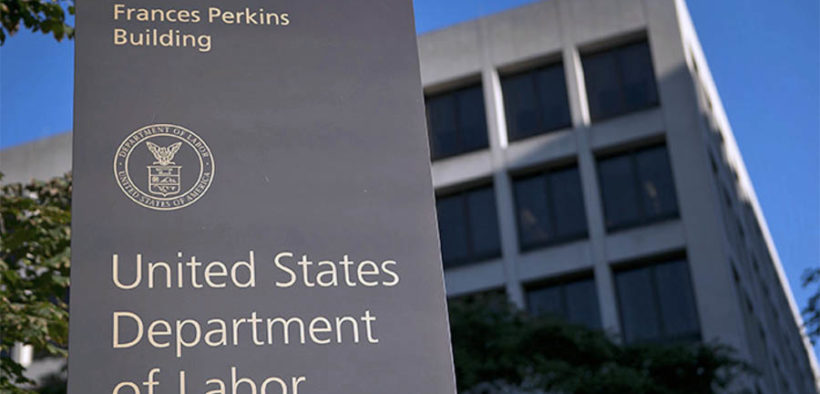Lawsuit shines spotlight on new federal rule for employee status

The U.S. Department of Labor sued a Puerto Rico security firm for misclassifying workers.
The U.S. Department of Labor is suing a Puerto Rico security guard company for allegedly misclassifying employees as independent contractors, highlighting new federal guidelines that are set to have a significant impact on the local labor landscape.
The agency filed suit against San Juan-based Optimus Service Group and its principal, Jorge Rivera-Berríos, for alleged violations of the Fair Labor Standards Act (FLSA). The complaint claims the employers willfully misclassified at least 254 current and former security guards as independent contractors, failed to pay the required overtime rates, and did not keep accurate records of wages, hours and other employment conditions.
Filed by the department’s Office of the Solicitor, the suit seeks back wages, liquidated damages and injunctive relief to prevent ongoing and future violations.
“Employers should know that the U.S. Department of Labor takes misclassifying employees as independent contractors very seriously,” Regional Solicitor of Labor Jeffrey S. Rogoff said in a statement. “Attempts to avoid complying with the law will be met with litigation to ensure that workers receive the wages they’re owed.”
Employees vs. independent contractors
The case brings to the forefront a contentious issue: the classification of employees as independent contractors. This issue was addressed in a final rule published by the U.S. Department of Labor in January with new guidelines for determining whether an individual is an employee or independent contractor under the FLSA.
“The misclassification of employees as independent contractors may deny workers minimum wage, overtime pay and other protections. This final rule will reduce the risk that employees are misclassified as independent contractors while providing a consistent approach for businesses that engage with individuals who are in business for themselves,” the agency said.
The rule, effective March 11, rescinds the independent contractor status under the FLSA rule (2021 IC Rule), published on Jan. 7, 2021, and replaces it with a new analysis for determining employment status that is “more consistent with the FLSA as interpreted by long-standing judicial precedent.”
This analysis, called the Economic Reality Test, considers six factors:
- Opportunity for profit or loss: Whether the worker can earn profits or suffer losses through their own efforts and decisions.
- Investments: Whether both the worker and employer invest in the work.
- Permanence: How permanent the work relationship is.
- Control: The degree of control the worker has over their work.
- Integrality: How integral the work is to the employer’s business.
- Skill and initiative: The worker’s skill and initiative.
According to the complaint, “the security guards are as a matter of economic reality ‘employees’ of defendants within the meaning of Section 3(e)(1) of the Act, 29 U.S.C. § 203(e)(1).”
Optimus provides security services to businesses and residential communities in Puerto Rico. In 2015, the department sued Rivera-Berríos and another security firm he owned for similar violations, resulting in a consent judgment that required them to pay more than $166,000 in back wages and liquidated damages and admit their misclassification violations.
Prepped for uncertainty and confusion
“This case brings this [new rule on employee/independent contractor status] to the surface because the allegations show that the agency is applying its Economic Reality Test, which is a pro-employee test, and not making any reference to the Puerto Rico test,” labor and employment lawyer Alfredo Hopgood told News is my Business.
“Employers in Puerto Rico will have to wonder which test, which criteria they should follow to determine who is an employee and who is an independent contractor,” Hopgood said. “Should they follow the 2017 Puerto Rico Labor Reform criteria? Or should they follow the U.S. Department of Labor’s 2024 criteria?”
The FLSA applies to employers engaged in interstate commerce and with $500,000 or more in annual sales, and deals with the minimum wage and weekly overtime pay. Unlike Puerto Rico law, it does not address other specific, additional or supplementary issues like daily overtime and meal periods.
Puerto Rico’s 2017 Labor Reform law states that if a federal law addresses an issue similar to one under local law, courts should use the federal law’s criteria unless the local law expressly requires a different interpretation.
“Here’s where the conflict comes in: The local law expressly states that in regard to employees and independent contractors, the Economic Reality Test will not be applied,” Hopgood said. “The catch-22 is: What will we do in Puerto Rico?”
Employers in Puerto Rico will therefore be covered by two different sets of criteria.
“An individual could be an employee under federal criteria but an independent contractor under the Puerto Rico criteria,” he said.
“For example, an employee is alleging that he’s not getting paid correctly and files a lawsuit in San Juan court, in Hato Rey. But when he sues, he includes a claim for overtime pay under the Fair Labor Standards Act and another claim for a meal period under the Puerto Rico law. In that case, the court would have to apply the Economic Reality Test when analyzing the claim for weekly overtime and the Puerto Rico Labor Reform criteria when analyzing the meal period claim,” Hopgood explained.
The lawyer added that similar conflicts are not new in Puerto Rico labor law, noting discrimination cases he handled before the Labor Reform.
“Under the federal law, the plaintiff (employee) had the burden of proof. Under the local law, up to 2017, there was a presumption of discrimination, and the employer (defendant) had the burden of proof — same facts, the same case,” he said.








